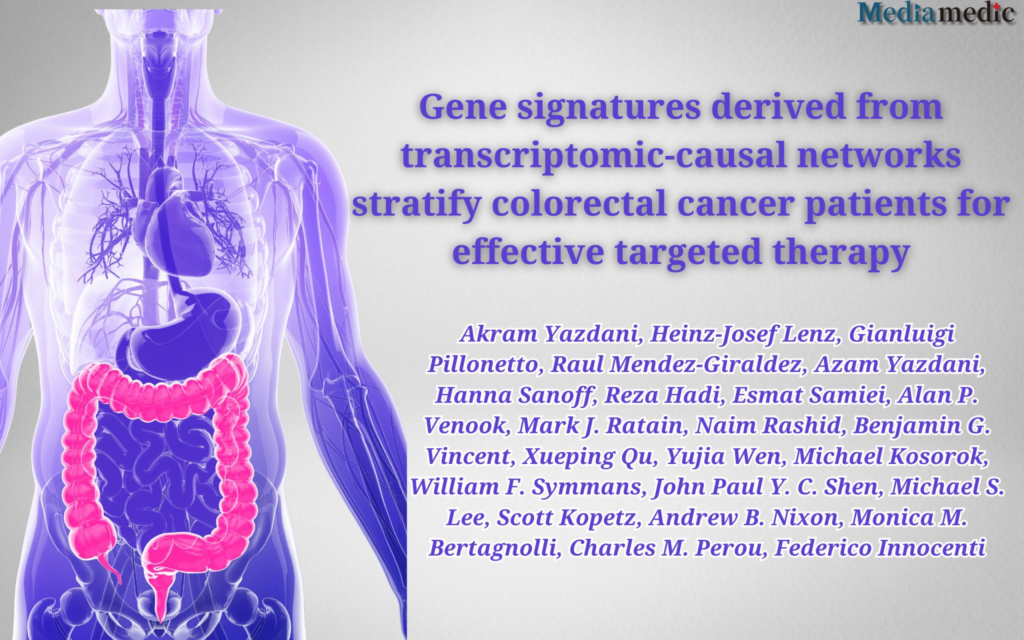
A new study published in Communications Medicine highlights the potential of gene signatures derived from transcriptomic-causal networks to improve patient stratification for targeted therapy in metastatic colorectal cancer (mCRC). By integrating gene interconnectivity into survival analysis, researchers identified distinct gene signatures that predict response to cetuximab or bevacizumab, providing a more personalized approach to treatment.
The study analyzed pre-treatment gene expression profiles from 1,165 patients in a randomized clinical trial, identifying key gene signatures, including FANCI and PRC1, which were significantly associated with overall survival and immune features such as macrophage activity, cytotoxicity, and wound healing. These findings suggest that gene expression patterns can serve as predictive biomarkers, enabling clinicians to refine treatment decisions and improve outcomes.
With further validation, this approach could transform precision oncology by ensuring that patients receive the most effective therapy based on their unique genetic profiles.

